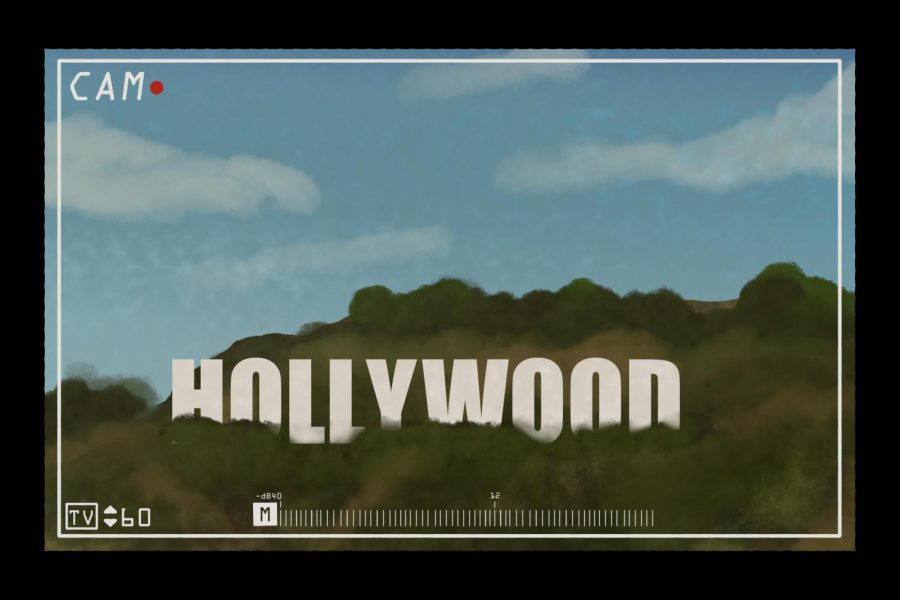Opinion | Hollywood needs to stop making biopics
October 13, 2022
Hollywood has always loved biopics. With an astonishing 125 best picture nominations and 22 wins in the history of the Academy Awards, the genre has proved to be a hit with audiences. Due to nostalgia, these films are guaranteed to pull large crowds and the stories write themselves, considering that their stories are based on historical events.
The biopic has been used and abused for too long now, and after the release of recent biopics, I’m officially done with the genre. Not only are these movies bland, but they distort the lives of real people and don’t consider the consequences.
“Blonde” and “Elvis” are the two most talked about biopics of this year, inciting varied reactions from audiences. While “Elvis” glorifies a figure by removing all his flaws, “Blonde” emphasizes Marilyn Monroe’s trauma just for the sake of exploitation.
“Blonde” is marketed as a biopic that follows the life of Marilyn Monroe, but it is actually based on a fictional novel by Joyce Carol Oates, misleading its viewers. It seems that the writer didn’t even like Marilyn because of the way she is portrayed.
This movie isn’t only exploitative of a figure who isn’t around to defend herself, but also blatantly lies about her life in order to remove her agency. The movie paints Marilyn, played by Ana de Armas, as someone who was thrown around between men, constantly being assaulted and unable to take control of anything in her own life.
In reality, when Marilyn wasn’t happy with the way that she was treated, she started her own production company. She actively fought against roles that only portrayed her as a dumb blonde and was constantly working to advance her craft. The film’s insinuation that she only got to icon status due to her sexual nature is disgusting.
“Blonde” has an NC-17 rating and many sexual scenes. One of the worst contains a graphic scene of sexual assult between Marilyn and President John F. Kennedy, which is purely fictional. The scene only exists to further strip her of any control she may have in her own life. Also, the relationship between Marilyn and JFK is only speculated to have happened. What the public knows about their relationship is made up of stories from bystanders and assumptions.
This connects to something that I found in both the “Blonde” and “Elvis” biopics. The films tend to choose elements to elaborate on instead of working with the exciting stories that people actually want to see. “Blonde” didn’t need to show JFK assaulting Marilyn, especially when it could have just elaborated on the scandalous relationship that may have existed between the two.
“Elvis” similarly paints the man as someone who cared deeply about civil rights while also uncomfortably skimming over the implications of this narrative. It spends an incredible amount of time showing the direct influence that Black music had on Elvis and his style but doesn’t acknowledge the advantage that his whiteness gave him.
Before we meet the Elvis that everyone is familiar with, the film shows us Elvis as a young boy, sneaking into a Black church and hearing their music. He is immediately intrigued and begins to perform with the other churchgoers. The film portrays this as the exact moment where Elvis, played by Austin Butler, realizes his true gift, as he can immediately perform as well as the Black people surrounding him.
The movie shows the direct correlation between the environment that he grew up in and the aspects of his style that made him popular. The part that is missing is why the Black singers that he learned from couldn’t have the same success.
It shows him being torn about his inactivity in the civil rights movement, but it doesn’t show him facing this fact in any meaningful way. The film only shows discrimination to show how it hurt Elvis because people thought that his style was “too Black.”
“Elvis” also acts as though all the Black singers that he learned from were happy about his success when some vocally spoke out against his popularity. Little Richard, who is known as the architect of rock n’ roll and influenced Elvis, has said, “I believe that if Elvis had been Black, he wouldn’t have been as big as he was. If I was white, do you know how huge I’d be?”
Like Marilyn, Elvis definitely had an interesting life, but the film was too scared to dive into any of the real grit, so instead, it settles on making up a conflict for him. And for some reason, the makers of the film thought the civil rights movement was the right fit.
The biggest difference between “Blonde” and “Elvis” is that “Elvis” had someone to sanitize his image for the sake of his legacy. Priscilla Presley speaks about her involvement in the film, so it is no surprise that the film refused to press on any questionable action of Elvis. One such action is her relationship with Elvis, which began when she was 14 and Elvis was 24.
The issue with biopics is not only their content, but styling as well. It is almost disappointing to see the beautiful shots and advanced technical elements wasted on stories that lack depth. But, unfortunately, style can not make up for lack of substance. The cinematic style of “Elvis” deepens the divide between the man himself and the audience, going against the typical motivation of the biopic. While “Blonde” took its attempt at grittiness too far by depicting brutal violence and trauma, “Elvis” makes the man a character of himself through the dizzying glitter and bright colors.
Artistry can only go so far when recreating musical numbers and performances that have to go against the originals. Ana de Armas and Austin Butler went to great lengths to embody their characters, but they still can’t capture the larger-than-life figures they portray.
The creative teams behind these films possess the technical skill to make great movies, but we need a focus on storytelling. So instead of making biopics that change the most critical aspects of the subject’s story, let’s just make better fiction.
Jameson Keebler writes primarily about pop culture and current events. Write to her at [email protected].









